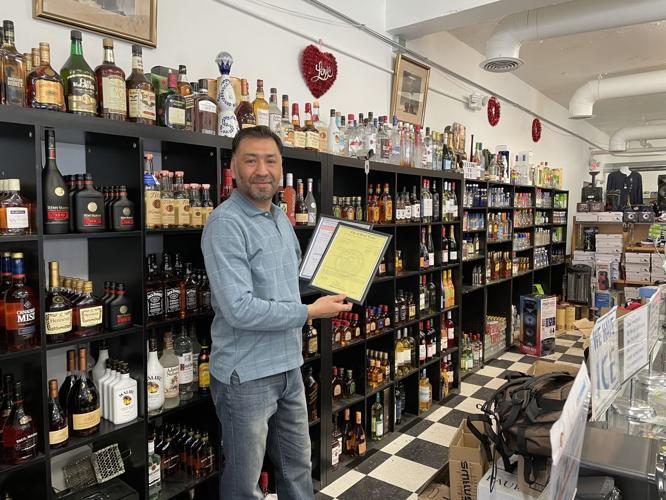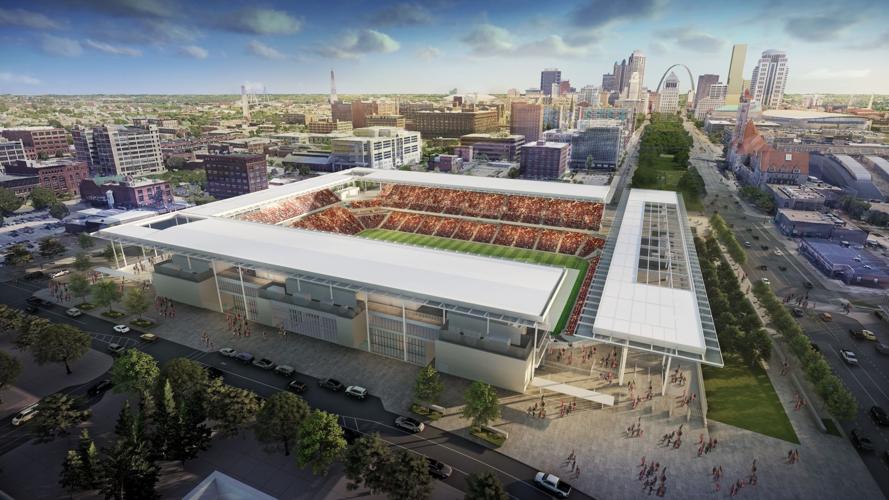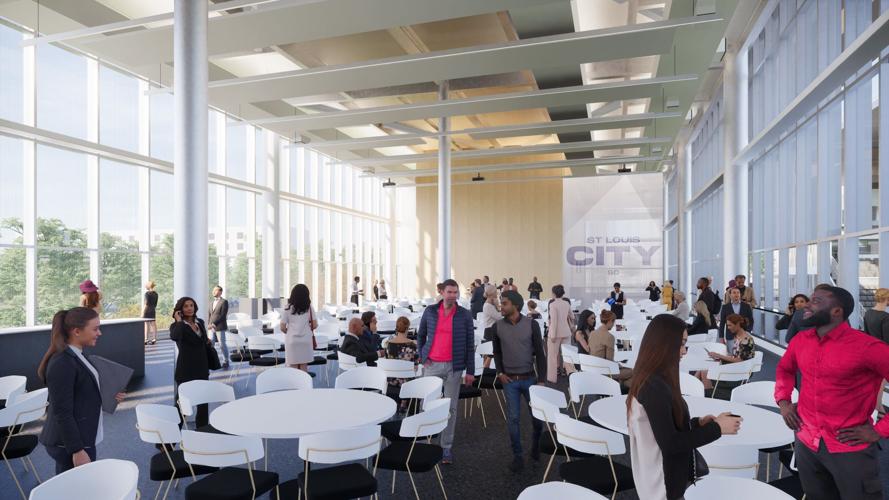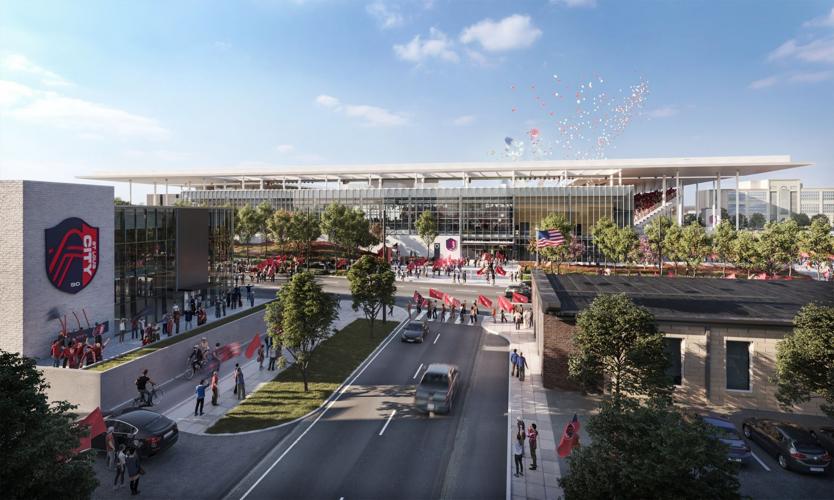The cranes and steel girders that have taken over the landscape in Downtown West between Market and Olive streets serve as a reminder of Jawad RahimiŌĆÖs tough times, and perhaps a promise of what is to come.
The construction activity is a mark of progress as the stadium for the cityŌĆÖs new Major League Soccer team, ├█č┐┤½├Į City SC, takes shape. Amid the shutdowns and slowdowns of the coronavirus pandemic, the stadium footprint offers economic hope for an area of downtown that needs some good news.
Construction continues Dec. 16, 2020, on the Major League Soccer stadium downtown. About 170 workers are on site now, a number that will peak at around 800 in late 2021 as the stadium approaches an August 2022 completion target. Video by Jacob Barker
Those same cranes, however, were the reason that RahimiŌĆÖs American dream almost collapsed. I wrote of his plight about a year ago. Rahimi is a native of Afghanistan, who immigrated to the U.S. with his family after working professionally as a dentist in Azerbaijan. He learned English, became a U.S. citizen, and opened a bodega in Downtown West that until late 2019 had been a neighborhood staple for a decade.
People are also reading…
RahimiŌĆÖs former store was in a building thatŌĆÖs been razed for the stadium. He found a new landlord just a couple of blocks away, at Olive and 23rd streets, in a building that had been mostly vacant. But the city didnŌĆÖt transfer RahimiŌĆÖs liquor license, and instead made him apply for a new one. His required neighborhood petition fell one signature short, and his license was denied, effectively killing his business that he practically had to rebuild from scratch.
ŌĆ£I canŌĆÖt pay my bills. I canŌĆÖt pay my rent. I canŌĆÖt pay anything,ŌĆØ he told me last April. After I wrote about RahimiŌĆÖs plight, the generosity of ├█č┐┤½├Į turned this story of bureaucratic bungling into something else.
ŌĆ£Hope came to my heart,ŌĆØ Rahimi told me this week. I stopped by his store last week to check on his progress. HeŌĆÖs doing well. HeŌĆÖs paying his bills, though he is still behind. He canŌĆÖt wait to go watch ├█č┐┤½├Į City SC play the game he grew up with, kicking plastic balls in the streets of Afghanistan. He canŌĆÖt wait for fans of the new team to walk by his store before and after the games.
Shortly after my column about Rahimi ran last year, he started hearing from readers. Some said they would lobby Mayor Lyda Krewson to make sure he got his liquor license. Others offered financial support ŌĆö he now owed back taxes that would have to be paid even if he could obtain a liquor license. He heard from the cityŌĆÖs excise commissioner, Myles McDonnell, who told him his liquor license had been approved, at least for six months. HeŌĆÖs since obtained another six-month renewal, and the required state license. He even got a call from the lone building owner whose signature he couldnŌĆÖt obtain for his liquor license approval. The man signed.
RahimiŌĆÖs American dream was intact once again. He is grateful to the city, to his landlord, to McDonnell, to all who helped him.
A customer walked in while we talked. He put five tall Busch beers on the counter and bought some smokes. For any small market in any city in America, this is the bread and butter. The people who live around RahimiŌĆÖs store, most of them at least, donŌĆÖt have a lot of money. They donŌĆÖt buy six-packs and 12-packs, but tall beers, and small bottles of whiskey to go with their cigarettes and other food items.
The irony is that such purchases almost made it more difficult for Rahimi to open. Among the challenges he learned he had after his liquor license was initially declined was that the wanted him to sign an agreement that he wouldnŌĆÖt sell single beers. Rahimi didnŌĆÖt want to do it; after 10 years in business at his previous location he thought it was unnecessary. But considering his difficulties, he signed anyway. Now thereŌĆÖs a sign in his store that says the minimum beer purchase of singles is three.
ŌĆ£Slowly, the customers are coming back,ŌĆØ Rahimi says. He looks to the east of his store, where the girders rise above the construction fences and the new soccer stadium takes shape. ŌĆ£Back in the day, soccer was my passion,ŌĆØ Rahimi says. He mimics juggling a ball and talks about playing in college. ŌĆ£If they let me stay here, itŌĆÖs going to be really good for business.ŌĆØ
























